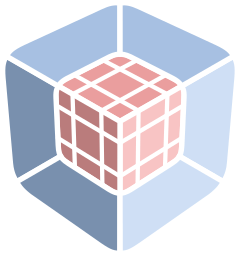High-order methods have the potential to overcome the current limitations of standard CFD solvers. For this reason, we have been developing and improving our spectral element code for more than 35 years now. It features state-of-the-art, scalable algorithms that are fast and efficient on platforms ranging from laptops to the world’s fastest computers. Applications span a wide range of fields, including fluid flow, thermal convection, combustion and magnetohydrodynamics. Our user community includes 500+ scientists and engineers in academia, laboratories and industry.
Codes
nekRS-v23.0.tar.gz
nek5000-v19.0.tar.gz
Features
- Incompressible and low Mach-number Navier-Stokes
- Spectral element disrectization
- High-order conformal curved quadrilateral/hexahedral meshes
- Semi-implicit 2nd/3rd order adaptive timestepping
- Conjugate fluid-solid heat transfer
- Efficient preconditioners
- Parallel I/O
- Lagrangian phase model
- Moving and deforming meshes
- Overlapping overset grids
- Basic meshing tools including 3rd-party converters
- LES and RANS turbulence models
- VisIt & Paraview support for data analysis and visualization
Team
- Paul Fischer (PI)
- Stefan Kerkemeier (Lead Maintainer)
- Ananias Tomboulides
- Misun Min
- Elia Merzari
- Aleksandr Obabko
- Dillon Shaver
- Thilina Ratnayaka
- YuHsiang Lan
Alumni
- Malachi Phillips
- Pedro David Bello-Maldonado (FEMSEM)
- Ron Rahaman (build system)
- Ali Karakus
- Ketan Mittal (n-nek-nek)
- Li Lu (avm)
- Oana Marin (user guide)
- Katherine Heisey (CI, nekBone)
- James Lottes (gslib, findpts, AMG)
Users/Contributors
Although many people join the our community every year, a few groups and individuals around the world have been using consistently and contributed to our project.
- Philipp Schlatter & Ricardo Vinuesa (KTH)
- S. Balachandar (University of Florida)
- Christos Frouzakis (ETH)
- Yulia Peet (ASU)
- Katherine Mavriplis (University of Ottawa)
- Mathis Bode (JSC)
- Jörg Schumacher (TU Ilmenau)
- Muhsin Ameen (ANL)
If you want to take an active hand in making our project even better, there are many ways you can contribute – adding new physics, improving our documentation, creating tutorials etc.
Share your work
Follow @nek5000 on Twitter and get a broad range of posts on topics such as performance studies, latest developments, to discussions in specific application areas, to recently published papers which have made use of the code.
Related Projects
